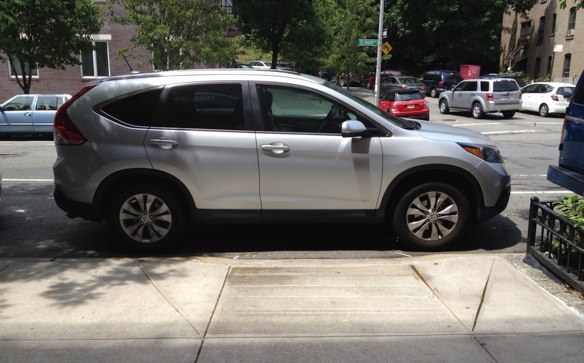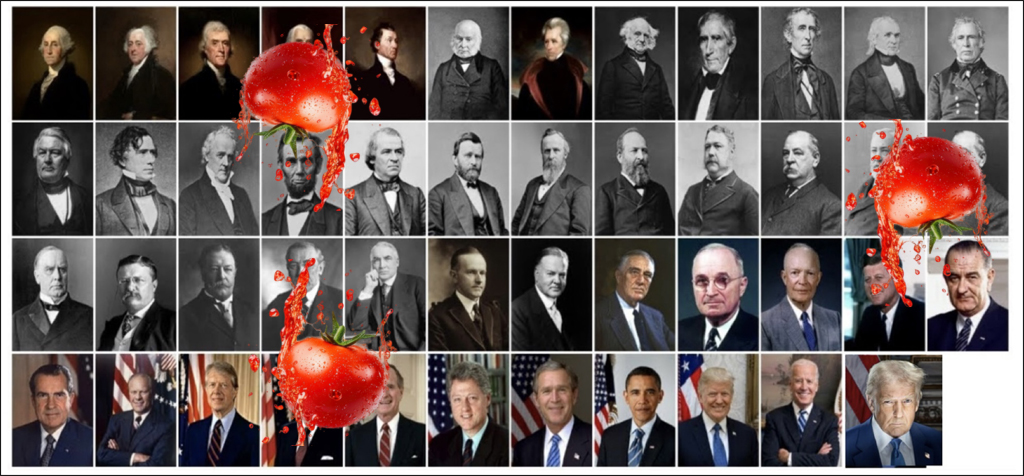A DOT rule allowing drivers to block curb ramps at unmarked crosswalks may conflict with laws that mandate access for people with disabilities, according to a local disability rights expert.
About 10 years ago, then-City Council member Vincent Gentile got the idea that unmarked crosswalks should be appropriated “to open up more parking spaces.” He introduced legislation to make it happen, but before the bill could come to a vote DOT went ahead with a rule change in 2009 that made it legal for drivers to park at T intersections.
“Dozens of new parking spaces are available in our neighborhood now that weren’t before,” Gentile told Brooklyn Community Board 10 in Bay Ridge, according to the Brooklyn Eagle.
Gentile framed the rule as "a smart way to provide more parking and, at the same time, encourage pedestrians to cross busy streets at safer locations.” But his contention that unmarked crossings are more dangerous than marked corner crosswalks was not supported by data. To the contrary, a 2013 NYU Langone study of Bellevue trauma patients found that more city pedestrians are injured in crosswalks during the “walk” signal phase than when crossing mid-block or against the signal.
Specious safety claims aside, it was obvious that Gentile was simply pandering to car-owning constituents, a City Council tradition that's tapered off only in the last few years. (Gentile's announcement drew applause from CB 10 members, the Eagle reported.) While the rule change did nothing to slake the insatiable appetite for free street parking, it did degrade sight lines for pedestrians and drivers and prevent disabled New Yorkers from using curb ramps at intersections across the city.
“People with disabilities, who might use wheelchairs or are low vision, need to be able to access curb cuts,” said Emily Seelenfreund, a legal fellow at Disability Rights Advocates, which is currently suing the city for failing to provide curb access under the Americans with Disabilities Act.
The suit pertains to the installation and maintenance of curb ramps, not ramps blocked by cars, but a similar legal argument applies. "Obviously if people are parking on the curb then that is a barrier to accessing the pedestrian right of way,” said Seelenfreund.
Other laws and regulations could be relevant, too. The city's Human Rights Law, for instance, “goes above and beyond the ADA,” said Seelenfreund, forbidding any discriminatory practices in any place of public accommodation.
“The ADA is kind of the floor of disability rights law," she said. "It invites localities to go beyond that, and the New York City Humans Rights Law does.”
In addition, entities that receive federal funding are obligated to accommodate people with disabilities.
Scoring cheap political points by making it more dangerous to cross the street is an ethical failure, to be sure, but it remains to be seen if a court would strike down the 2009 DOT rule. "It certainly seems to violate the spirit of the ADA,” said Seelenfreund.
“I use a wheelchair," she added. "I certainly get annoyed when curb ramps are blocked. So I wouldn’t discourage people from complaining about that or looking into their legal avenues.”
DOT did not respond to a request for comment on this story.






